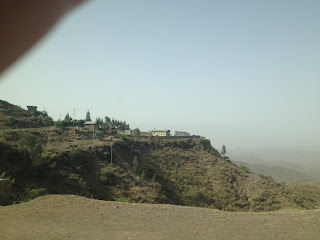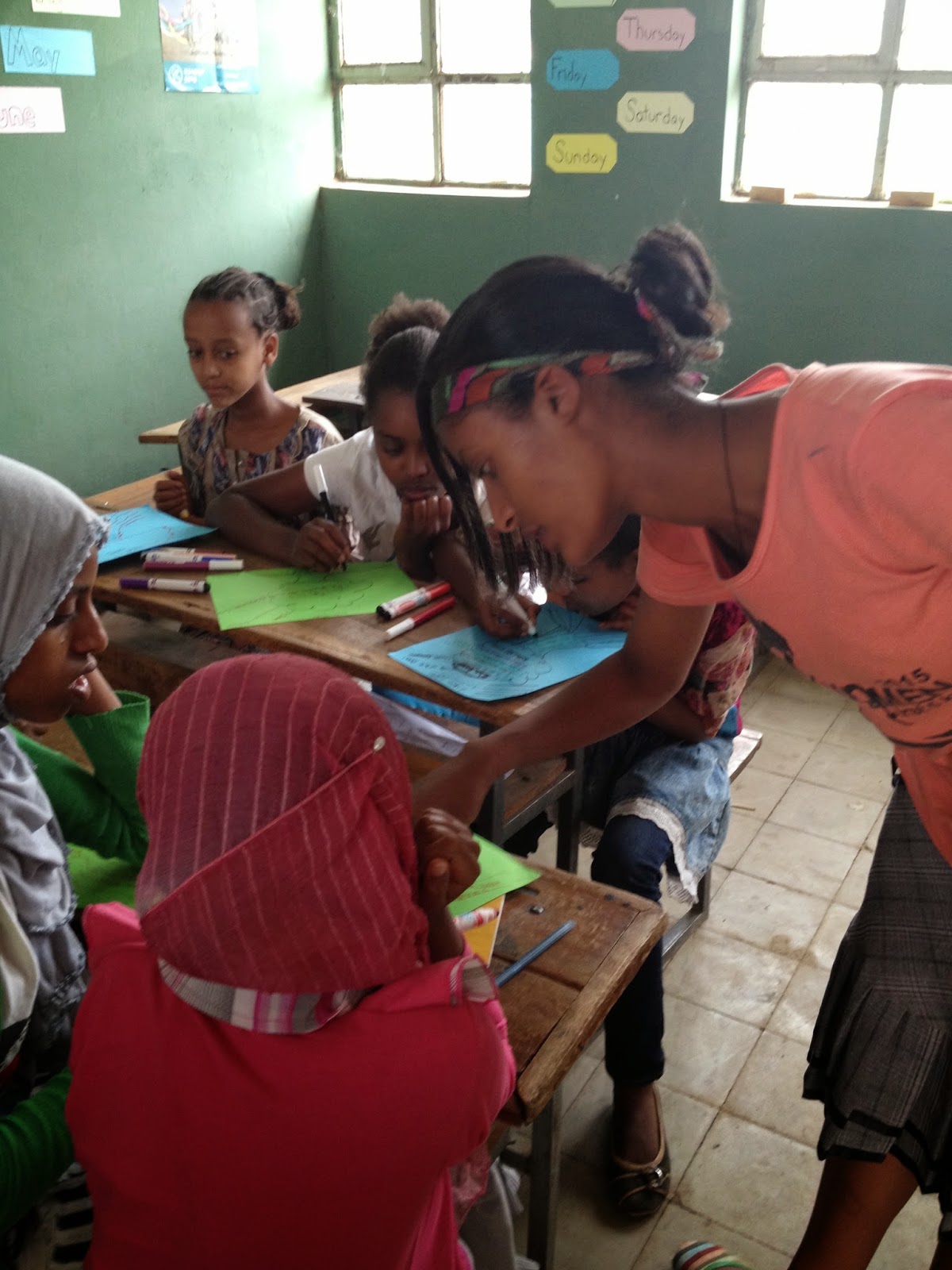As my
COS (close of service) date approaches I've been thinking a lot about what I want my final blog to
sound like. I had this idea that it would be some beautiful last post on all
the things I got out of Ethiopia, the lessons I had learned, the people and the
experiences that would stay with me forever. But as I arrive into my final days
in Butajira I'm at a loss of words and instead of words I'm filled with immense
sadness and anxiety. My mind is blank. I don't know what to say because I can't
believe this is over. I can't believe I'm actually leaving Ethiopia. I never
really thought this day would be here. Reaching COS always seemed so exciting,
but now that I've actually arrived at this point, just a handful of days away
from it, I'm so incredibly sad. Don't get me wrong, reaching COS is definitely
exciting. More than anything I'm so proud of myself for having lived here for 2
years. But now that I'm actually packing up my house and realizing that this
all of this is real, that excitement is turning into anxiety. As I go around
fulfilling my daily tasks the voice in my head reminds me "this is the
last time you'll ever walk to school," "only 5 more mornings, 4 more
mornings, 3 more mornings … of going across the street to the suuk for fresh
bread," or "this was your last bayenet at Mamush" and when once
I had thought I would be looking forward to those countdowns, now that they're
here I'm scared. I'm scared of not having this routine anymore. This routine
that has become my daily comfort, my life. I'm scared of the coming days when I
will have to say goodbye to my host family. To my neighbors and friends. How do
you say goodbye to people you will probably never see again? How do you say
goodbye to a life that will seize to exist after 5 days?
I'm
going to do my best to make this the final farewell I had envisioned.
These
last 2 years have been the hardest of my 24. That being said they have also
been the most rewarding. I cannot imagine my life today if I had never joined
the Peace Corps. I remember first coming upon the Peace Corps at a career fair
at UT. I was immediately drawn to serving. I had always wanted to go to Africa,
but not as a tourist. I wanted to live in Africa and truly experience how that
part of the world lives. For a while I had been doing some research on options
I had for going across the Atlantic. 3 months after that career fair I sent my
application to the Peace Corps and 9 months later I received my invitation to
serve in Ethiopia. I remember opening that email and crying. I was so happy and
proud. I had actually been accepted into the Peace Corps. 2 years later I can't
believe this part of my life is over.
What's
the biggest, most important thing I've learned after 2 years? Looking back on
the work I did and the people I met, all the wonderful and horrible experiences
I went through, the relationships I formed are what will stay with me.
"Peace
requires the simple but powerful recognition that what we have in common as
human beings is more important and crucial than what divides us" - Sargent
Shriver
I
couldn't agree more and this quote couldn't be more true that what I've learned
in Ethiopia. Missing America and my friends and family, I learned how important
culture was and how hard it was to be away from it early on into my service.
But Ethiopia has taught me that no matter how different our cultures,
backgrounds, and histories make us, at the end of the day we are all human. I
was able to connect on a powerful, emotional level with several Ethiopians. I
consider that my biggest success. I made a family here. The relationship I have
with my best friend here is the same as the friendships I have back home. We
have gotten past our differences as American and Ethiopian and used that to
learn more about one another and become closer. A couple of days ago she came
over my house and we had a 2 hour conversation, just as I would with my
American friends back home. When I go have lunch with my host family I feel at
home. I'm so comfortable. My Ethiopian mother kisses me and hugs me as my own
Mom does. When I told her my COS date she told me she wanted me to come back to
Ethiopia when I start having children so she can meet them. A couple of months
ago my host father gave me some advice on finding the "ideal" partner
in life. Even though I disagreed with just about everything he was saying, I
felt extremely loved. He was talking to me like a father talks to his daughter.
He was giving me this advice because he truly cares about me. This last week my
school held a coffee ceremony for me. The director of my school (the closest
person I have been to in the work place) was in Hawassa taking some summer
courses at the college so I didn't expect to see him, however the teachers
called him to tell him they were having a goodbye ceremony for me and he
surprised me by showing up. So after reminding myself of all these beautiful
moments and so many more in my service, how could I ever leave without thinking
I wasn't successful? I was able to really connect with people from completely
different backgrounds and histories than me. I find that truly beautiful.
So how
do I say goodbye to this life?
By
taking all those memories with me, into the next chapter of my life. I just
hope the next 2 years are as exciting as these last 2. I'm going to remember
the wonderful people that I met, the relationships and bonds I formed. I will
never forget this country. Ethiopia will forever be close to my heart.


























.JPG)



